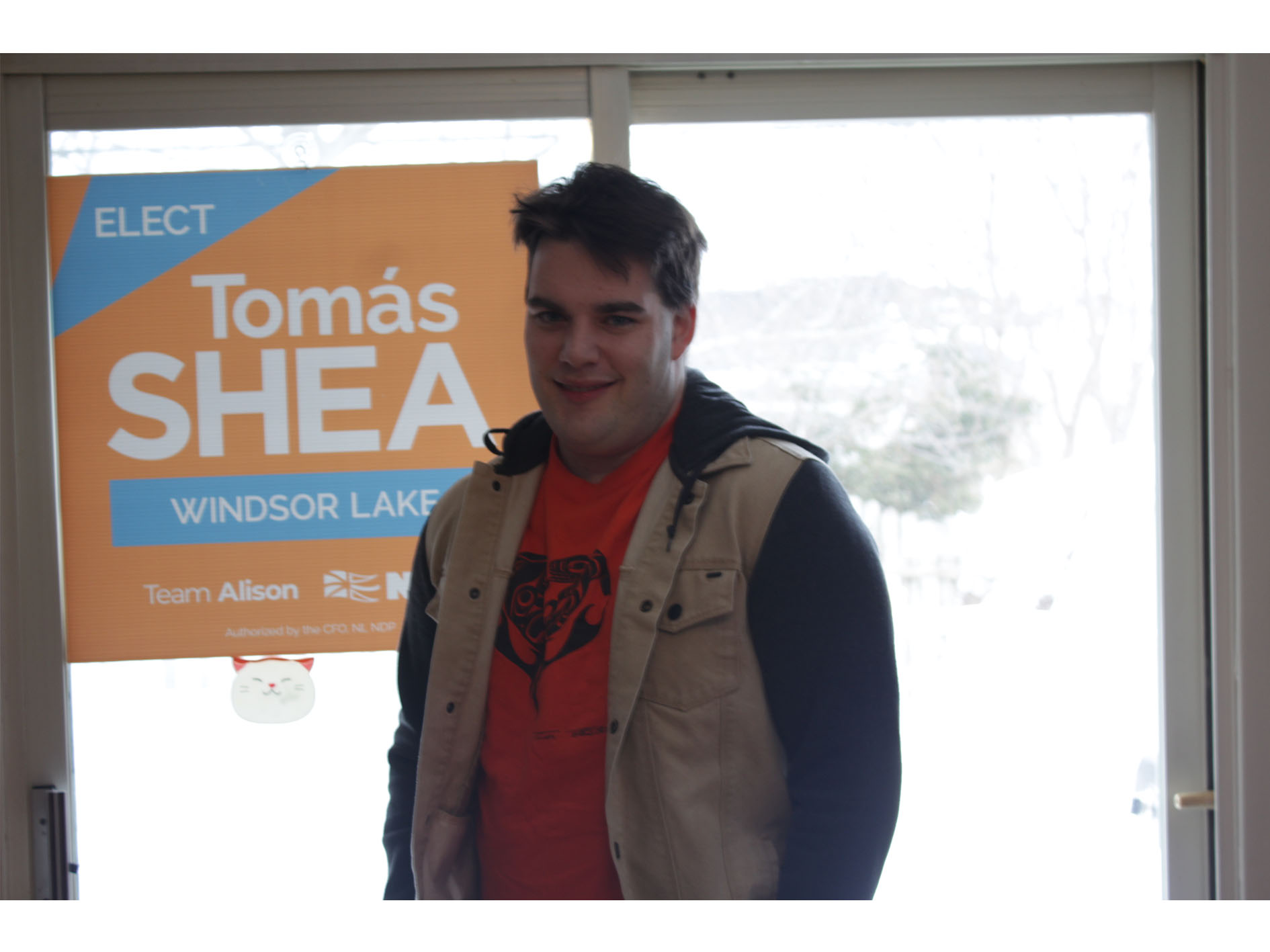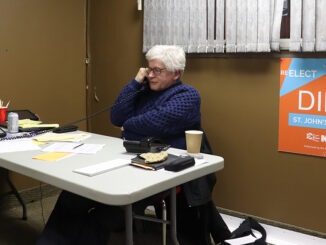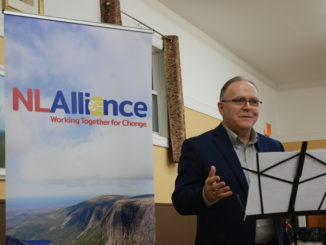For one young candidate in the upcoming provincial election, the process is more important than the results.
James Piercey
Kicker
Since Confederation, voters in Newfoundland and and Labrador have only elected Liberal and Progressive Conservative governments. With the recent exception of Kathy Dunderdale, they’ve all been headed by white men over 40.
Every year, young candidates like Tomás Shea enter the race.
“I would have (to have) very high hopes if I thought I was going to beat the official leader of opposition,” said Shea.
Shea, 27, is the New Democratic Party candidate for the Windsor Lake electoral district in the Feb. 13 election.
Progressive Conservative leader, Ches Crosbie, is the incumbent.

Shea, by his own account, knows that victory will be a tremendous challenge when people go to the polls on Feb. 13. Still, he’s eager to make his contribution to the democratic process.
“As the election progresses, I feel more positive about my opportunity to split the vote,” said Shea.
Shea could certainly be described as a busy man. He is an engineer, father of two, and passionate part-time musician. Still, he finds time for the political process.
Many in his age demographic, though, are more cynical about politics.
Scott Matthews, associate professor of political science at Memorial University, thinks there are several explanations for that.
“My gut tells me that young people just aren’t terribly interested in politics, and develop attitudes that support their behaviours,” said Matthews. “Ignorance produces cynicism, or at least a kind of discontent.”
Shea suggests the seeds of political cynicism are actually planted early in life.
“Political cynicism develops long before young adults begin following politics,” said Shea. “It starts when children hear their parents talking about how nothing ever changes.”
Beverly McLean is a child psychologist who has been practicing privately in St. John’s for over 35 years.
“How we talk to children, and in front of children, definitely has an impact on how they think and view the world.”
Matthews agrees.
“Some of the most important attitudes people have are, to a great extent, traceable to their parents,” said Matthews. “In fact, one of the best predictors of how you’re going to vote is how your parents voted, even decades ago.”
Understanding the thought process, says McLean, can help.
“Take time to help your kids understand why you like a particular party or politician,” said McLean. “Most importantly, encourage them to think for themselves. As they get older, ask them what they think.”
St. John’s councillor-at-large Maggie Burton sees reasons to hope for a less cynical, and more involved youth. Burton is well aware of what it’s like to be involved in politics without fitting the conventional image of a politician. She was elected to council at the age of 26. Like Shea, she is a young parent, and her interests are diverse.
“Since I’ve been on council, I’ve seen a more open and transparent dialogue between municipal politicians and young people,” said Burton. “I believe young people are more likely to voice their concerns if there is another young person in the room to voice them to.”
Once they take the opportunity to voice those concerns, Burton says young people can “become lifetime political watchers, at the very least.”




Be the first to comment